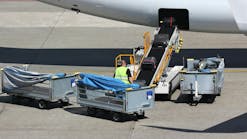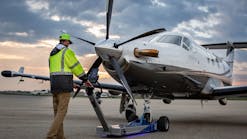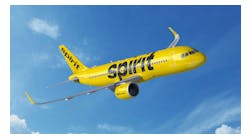COLLEGE PARK, Georgia (AP) -- Delta Air Lines Inc. will do whatever necessary to achieve the remaining $1 billion (euro790 million) of its targeted cost cuts and tough decisions may have to be made, Chief Executive Gerald Grinstein said Thursday.
''There is no area that will be safe from scrutiny,'' Grinstein told shareholders at the struggling carrier's annual meeting.
Grinstein said the third largest U.S. airline is on target to achieve a total of $5 billion (euro4 billion) in annual cost savings by the end of 2006, though he did not specify what beyond its previous initiatives it will do to reach that goal.
The Atlanta-based company's meeting included a passionate speech from the head of its pilots' union about the sacrifices pilots made to save the company from bankruptcy last fall, a threat Delta again faces just seven months later. There also were frequent interruptions from a wealthy shareholder who has been outspoken at several different companies' annual meetings in recent years.
''It's moments like these that test men's souls,'' Grinstein said after a series of rants by shareholder Evelyn Y. Davis of Washington, D.C.
Three company proposals were approved at the meeting while six shareholder proposals were rejected.
More than 100 pilots with Delta subsidiary Atlantic Southeast Airlines picketed outside the convention center where the meeting was held. They are unhappy about the failure to get a new contract with Delta.
At issue in the ASA negotiations with Delta are schedule, wages and retirement benefits. Some analysts have speculated that Delta might sell its regional carriers ASA and Comair Inc. to raise cash. Delta has not gone so far as to say that is its plan, though Grinstein noted at the meeting that to gain some of the benefits from the regional carriers, ''you don't have to own them.''
In previous weeks, several analysts have suggested Delta might be ripe for a bankruptcy filing by this fall based on the high price of fuel and worrisome comments by the airline in a recent regulatory filing. Just last week, Delta's stock fell to its lowest point in at least 32 years, but has rebounded since then.
In a research note Wednesday, J.P. Morgan Chase & Co. airline analyst Jamie Baker said the probability of a Chapter 11 filing by Delta in 2006 remains high, though he believes a filing this year is not as likely.
Filing for bankruptcy protection is far from the disaster for airlines. UAL Corp., parent of United Airlines, and Arlington, Virginia-based US Airways Group, Inc. have been in bankruptcy for several years now and they are still flying. Even their frequent-flier programs remain in tact.
John Malone, chairman of the Delta pilots union's executive committee, told shareholders that pilots have done more than their share to help turn around the airline and now it's Delta's turn to step up and show results. The pilots agreed to a 32.5 percent pay cut last fall as part of a $1 billion concessions package.
''The coming months will determine whether our investment was a prudent one,'' Malone said. ''Unfortunately, the first-quarter results illustrate that substantial obstacles stand in the way of Delta's recovery.''
Malone said Delta pilots' pensions are in peril because of the company's financial problems.
''We will hope for the best and prepare for the worst while taking heart that we have done more than our share,'' Malone said.
The proposals approved at the meeting included election of nine Delta directors and ratification of the appointment of the company's independent auditor.
Shareholders also approved a Delta proposal doubling to 900 million the number of shares of common stock it is authorized to issue and reducing the par value of the common stock from $1.50 to 1 cent. The airline, which is incorporated in Delaware, believes the proposal gives it greater flexibility in using common stock for various corporate purposes because Delaware law permits a company to issue shares only if it receives value equal to at least the par value for the shares.





